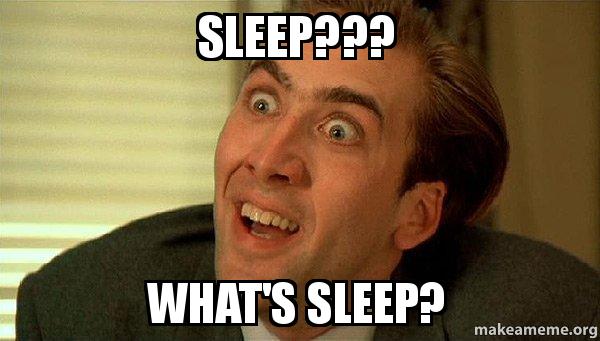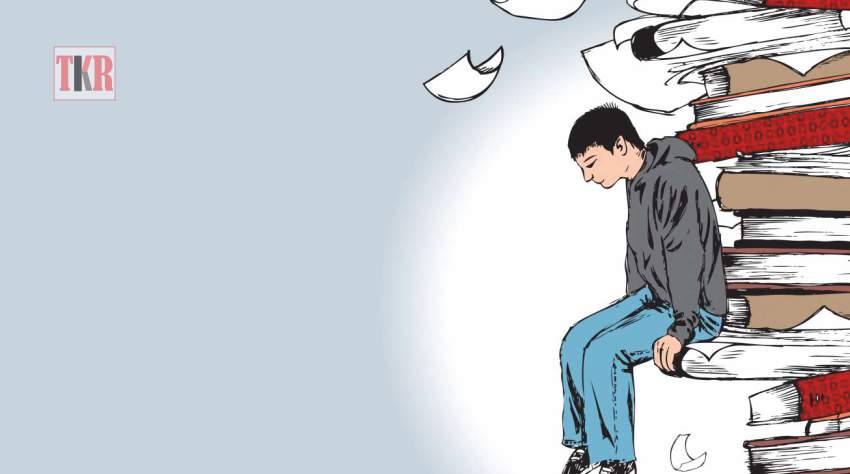By Nora Hazan, Year 12
Words most repeated by students during school hours – at the very least once a day – are : “Ugh, I’m SO tired.”
Students are extremely tired and not just because of the IBDP workload but because of the school schedules and the amount of sleep it permits us to have.
Teenagers should have a minimum of eight hours of sleep per night, preferably ten. I would say about 10% of LGB students are reaching the eight hour minimum. Don’t congratulate yourself too quickly if you have reached that mark. Tell yourself eight hours of sleep is like a 4 on your report card : you aren’t failing, but you’re barely passing. The other 90% are simply failing.
The consequences of sleep loss are detrimental to our education and health. Our alarm clocks rob us of essential hours of sleep that are mostly associated with learning, memory consolidation and emotional processing.
As teenagers, we experience a shift in our biological clock. This is driven by delay in the release of the ‘sleep’ hormone melatonin (note to adults: social media is not the main cause!). Our bodies wait to start releasing melatonin until around 11pm, which is two hours after the release in adults and children. Therefore, waking up at 6am is the biological equivalent of an adult waking up at 4am. Dear adults, how would you feel if you unfortunately woke up at 4 am ? Could you think straight? Would you be easily irritable? Foggy? A zombie even?
Well this is how we feel every morning. These feelings are due to the inability of our cerebral spinal fluid to ‘cleanse’ our brain and ‘reboot it’ for a fresh new day. The common traits that conceptualize the teenage stereotype such as irritability, lazyness and depression might just be the product of chronic sleep deprivation.
The adolescent years are essential for the development of our brain, and most importantly the part of our brain that controls higher order thinking processes such as problem solving, reasoning and good-judgement: in other words the part of our brain that keeps us away from risky behaviors that are so stereotypical of teenagers. Our brains are unable to concentrate and often mimic characteristics of ADHD.
The consequences of teenage sleep loss go far beyond the classroom, sadly contributing to many mental health problems that appear during adolescence including drug use, depression and even suicide. A study with over 30’000 high school students shows that for every hour of sleep that is lost there is a 38% increase in feeling sad or hopeless and a 58% increase in teen suicide attempts.
Some may think that schools starting later will just mean students will go to bed later and end up with the same amount of sleep. On the contrary: there has been a tremendous amount of scientific research proving that teens in schools with later starting times get more sleep. Another study showed that delaying the starting time decreased school absences by 25%: students are less likely to drop out and will undoubtedly do better academically, (and will be less cranky so the family as a whole will be happier).
In all, it is found that delaying school starting time will be beneficial to society over time because rates of suicide and mental illnesses will go down, and students will go further in academia and get better jobs.
This issue sounds like a no-brainer right ? Society is still not ready to give us the extra hour of sleep we so desperately need with the excuse that we must prepare for the real world. Does the adult world actually start at 4 am?
Have a think, and sweet dreams.



